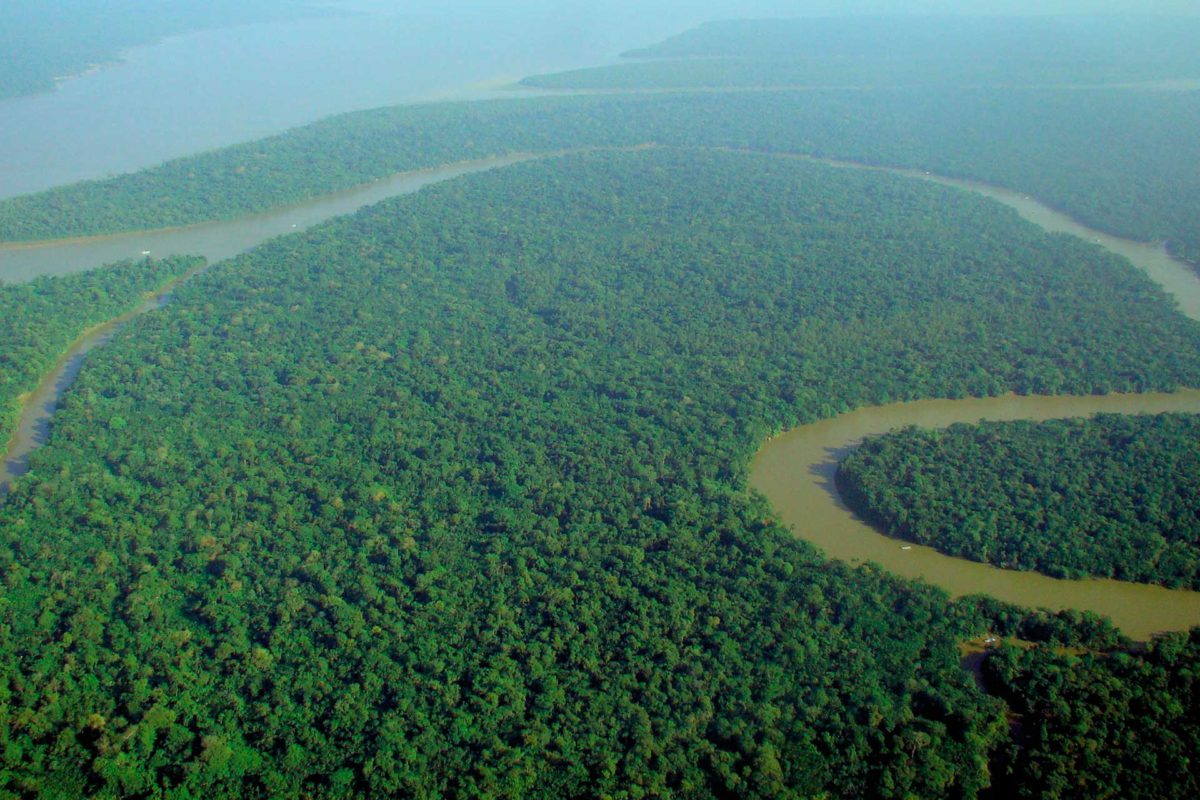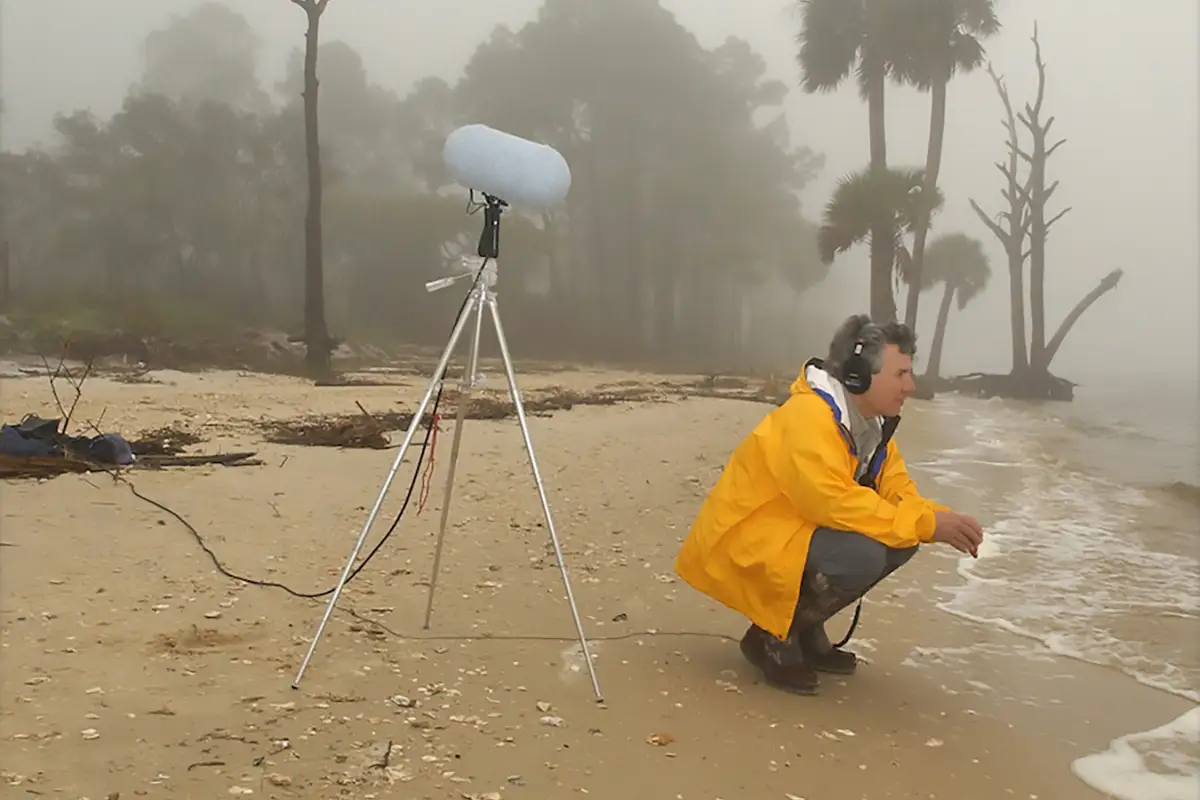For more than a decade Reforest’Action has been taking measures to counteract the effect deforestation has left in the Amazon. An interview with Jihane Guenoun on International Day of Forests, 21 March
Amazon: one of the fastest changing ecosystems
Land to the world’s largest rainforest, an ecosystem that supported thirty percent of the planet’s terrestrial species; home to amounts of carbon and in turn expends ample influence on global weather patterns and climate. In spite of its scale, the Amazon is known for it being one of the fastest changing ecosystems, due to the result of human activities such as deforestation, forest fires and the progressive inclination of climate change.
Reforest’Action, a French company founded in 2010, has dedicated its work into finding solutions to such threats through appointing ideas of preservation, restoration and forestation in order to create a community with a positive social health in a rich biodiverse ecosystem.
Jihane Guenoun, forestry project manager
Talking to Lampoon is Jihane Guenoun, forestry project manager of the company, who walks us through the changes that they have overseen and planned for the future for the Amazonian community and forest.
«We are a French corporation designed to do business for good. We aim at generating positive outcomes and impacts for the economy, society, biodiversity and climate. Our core activity is to restore degraded forest lands on our planet. We started in France ten years ago continuing with Senegal and today we are present in more than thirty countries in the world; we aim to find project holders in all of these countries that want to restore degraded forest lands but do not have the economic means to do it and bring these funds to these project holders. We are looking for the type of projects that maximize what we call ‘ecosystem services’ which means all the free services that nature brings to us as a society, for example cleaning water, giving us fruit and restoring the soil».
Increasing deforestation rates since 1900s
Incited by a flourished global commodity and poverty in some of the world’s poorest regions, deforestation rates have increased since the late 1900s. Threats like agricultural conversion, logging, wildlife poaching and road constructions all pose eminent peril to forests that are soon to be rivaled and even surpassed by climate change and the increased levels of carbon dioxide in the atmosphere.
«The Amazon is one of the places that has been severely affected by deforestation on our planet, sixteen percent being defrosted. In Brazil, where sixty percent of the Amazon lies, we have already reached a deforestation rate of twenty percent. The latest scientific studies on what could happen if the Amazon continues to get deforested is that if we reach twenty percent of deforestation in the whole Amazonian rainforest, a dramatic change can happen because it is a system involving exchanges between the components of the system and specifically the water. If we reach that twenty percent the water cycle in the Amazon could be in such distress that the Amazon could start to slowly turn into a savanna».
Brazilian law and the Amazon Forest
«In Brazil, a large part of the forest does not have – what they call – a proper destination. In the Brazilian law, a land has to have a destination which is different from a title and a great part of the Amazon rainforest plants do not have the proper or clear destination so this weakness from the part of the law allows land grabbing. One can easily invade the land and then claim it as yours if it has no administration or lacks documentation or papers, opening the gates for deforestation. Agriculture plays one of the biggest roles of deforestation; many land grabbing occurs by invading the land and deforesting it then re-purposing the land into pasture to raise cattle for the production of meat. In that part of Brazil, a land is worth more without the trees than with trees so when you invade the land and want to sell it and speculate on it, if you cut the trees then you get more money for selling that land even if it is illegal or you do not have the papers. Then there are many other industries that contribute to deforestation such as mining; mining for metal is done by cutting the forest and destroying the land. Mining is a serious issue because when you start mining a forested land there is little you could do to recover it after because you break everything that is in the soil; mining is an invasive industry. Lastly comes all the infrastructure industry for example building streets, roads and power plants and all of these land-demanding expansions lead to deforestation».
Reforest’action collaborations: local farmers of Hondunnia
Alongside NGO Rioterra, Reforest’action was able to work with local farmers in the state of Hondunnia in order to implement trees on their farmlands advocating more sustainable farming disciplines by innovative tree planting practices.
«In Reforest’Action we do not come with a plan or design of what should be done. We look for people from the country with their own designs with their own projects and we help them for the technical and financial part, but the idea comes from their end. Not bringing our mindsets into the country is helpful for the project to get engagement with the local communities because from the beginning it’s their project and they are the ones that make decisions regarding what aims they want to have from the social side or economic aspect. We try to help them build it».

Reforest’Action: ecologically dependable, feasible and socially responsible
Governing forests sustainably comprises a system in place that is ecologically dependable, feasible and socially responsible. This imperative ideology will preserve the Amazon’s forests along with the goods and services it provides in conjunction with the improvement of the social and economic well-being of local citizens who live in the region.
«There are things that have to be done by the citizens, by companies and by the government to try and change the current state of deforestation of forested lands. From the government’s standpoint there is a huge need to clarify juridical aspects of all the land and have clear property usages, making it harder for land grabbers to steal and abuse the land. In Brazil they have thorough forestry codes. They were advanced many years ago. The problem now is that the law is not enforced».
Imported deforestation
Jihane Guenoun points out, «another step is that we, as citizens and consumers, need to be aware of the choices we make every day and we have to fight from our side for what is called ‘imported deforestation’ because when we buy for example meat that comes from countries where the cattle were raised on deforested areas, then we promote deforestation. As citizens we have to take this into account in our everyday choice. Companies have a major role to play in this and we can re-shift the economy because most of the deforestation is driven by economic factors; people do not grab lands just for the sake of it if they do to make a profit out of it. There are many examples of companies that try to find a more intelligent business model that are cost-effective and have innovation in them».
The impacts of the rise of the pandemic in the forest conservation
In Brazil, forest concessions have become favorable for different types of groups of people, not just indigenous groups but with varied types of forestry management, with both non governmental and governmental assistance.
«All economic systems that you can create and are somehow in balance with nature can be called sustainable. If you take the circular economy for example and agroforestry; some types of agroforestry are a type of circular economy because you put energy and capital into the land, producing fruit then being able to recreate, and so a circle is formed. A sustainable community is a community that can sustain itself in the long term without destroying the resources it needs to maintain. In the field of agroforestry, we try to promote in many countries where we go because we want to work hand-in-hand with the local communities which often have economies that are based upon nature, they need nature as their main source of livelihood producing from and with the land. We work together to create a more sustainable model for the community to produce and keep an economic activity which is done by regenerating the land; the same land that will keep sustaining them for many years to come».
Public and private sectors impact on conservation
The impacts of the rise of the pandemic had started to provoke a response from both the public and private sectors: recognizing that the roles that local citizens play in conserving forests was rising, technological advances were improving forest monitoring to the extent that ignorance was no longer an excuse for inaction as well as interest in forest restoration was reaching new heights.
«With the pandemic’s outbreak, we experienced new and challenging situations from the restoration sites; we have managed to restore the land we wanted to restore and reach the goals in terms of number of trees planted but of course we had to take extra precautions to make sure that everybody was safe during the planting activities everybody kept their distance one from another. The local communities are often composed of traditional groups of population like indigenous people in Brazil and they are the most susceptible to the pandemic than many other groups of populations and that was why we had to take all precautions for the success of our projects».
Reforest’Action ‘I plant my tree’ initiative
Another initiative that has been set up by the French organization is the ‘I plant my tree’ initiative, aiming at raising awareness to the environmental crisis that we are living in from anywhere in the world.
Guenoun explains, «we created this platform to try and raise awareness for people, citizens and friends all over the world and to help people see what these restoration projects look like and to give them the opportunity to contribute to the reforestation process. You can choose to plant a tree on our website and you can access any news on the project’s lifespan. It is crucial to raise awareness because when people contribute to themselves, they can see the contribution to finance a tree that was planted in Haiti or in Brazil and see the pictures of the forest growing and learn about the local communities there. Then a special and personal connection or a growing interest can occur also when they read all the things on our website that try to bring awareness to deforestation as an entire corrupt system in the world».
Reforest’Action: multiply trees and improve air quality and the citizens’ quality of life
While we may have a long way to go in terms of making our planet sustainable and greener, companies like Reforest’Action have employed a unified goal in all their projects: multiply the number of trees and improve air quality and consequently, the citizens’ quality of life.
«Forests are crucial to us and we do not take it into account our everyday lives; forests give us many things in return for free: they clean the water, preserve the biodiversity, help cleaning the air, provide fertile soils so we can grow our food, they give us so many things that we are not aware of and we have to contribute and help by first fighting against deforestation and destruction of the forests and then by doing our best to try and contribute to reforesting the lands that have been destroyed». Guenoun concludes, «as citizens, we can promote companies that share the same ideologies. We should not do it only because it is an ethical thing to do or because of our conscience, we do it because we depend upon it. If there are no forests left in the world then there are no humans left and we need to do it now because we have reached a point where we might be close to all the non-turning back points. We have the power to do it and we can do it quickly and in an efficient and clever way by planting native trees and diverse species with the local communities to build sustainable economies».
Reforest’Action
A French based company that aims to shed light on the aftermath of the environmental crisis that we are experiencing and try to preserve, restore and reforest what has been left in all parts of the world. Having a network of more than 600 project leaders located in France and all over the world, the company has now successfully planted more than ten million trees in twenty five different countries.



















